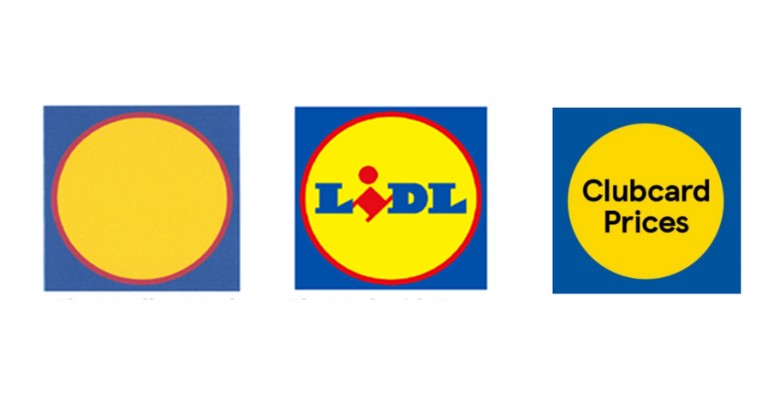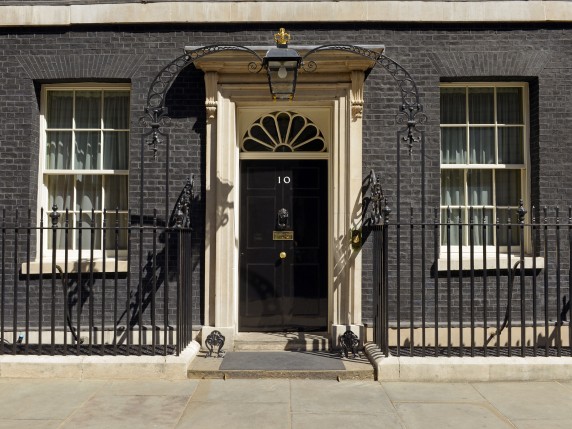The ‘Battle of the Supermarkets’ is increasingly stepping out of the shopping aisles and into the courtroom. Following settlement of the now infamous ‘Colin v Cuthbert’ dispute between Aldi and Marks and Spencer’s, Tesco and Lidl have taken centre stage, with Lidl accusing Tesco of infringing the intellectual property rights in its logos.
The case involves numerous interesting points of intellectual property law, including the use of a trade mark strategy known as ‘evergreening’.
In the original judgement it was held that Tesco’s Clubcard logo constituted trade mark infringement, passing off and copyright infringement. The case has now been decided at the Court of Appeal, with both sides having appealed the respective findings made against them in the first instance.
Here, our trade mark solicitors discuss the decision, including what ‘evergreening’ is, its benefits for business owners and the potential pitfalls.
Lidl’s case - trade mark and copyright infringement and passing off by Tesco
Lidl’s initial case was that Tesco’s Clubcard logo infringed various intellectual property rights in Lidl’s blue and yellow logos. Lidl has trade mark registrations, both for a logo featuring its name and one without (known as the ‘Wordless Mark’).
Tesco’s counterclaim
Following registration, trade mark owners have a five-year grace period to begin using their mark. If not, the mark is at risk of cancellation for non-use. To defend a non-use cancellation action, the owner must prove it has used the mark for the purposes it was registered. Even if the mark has been used, gathering the evidence can be time consuming and costly.
To circumvent the five-year rule, some trade mark owners employ an ‘evergreening’ strategy. ‘Evergreening’ involves registering a mark identical to an existing trade mark, for identical or broadly similar goods, before the existing trade mark’s five-year grace period has expired. By ensuring it always has a registered trade mark less than five years old, the trade mark owner avoids ever having to provide evidence of use of an older mark.
Whilst Lidl has used the logo incorporating its name extensively, it has never used the Wordless Mark in the UK. It has adopted an ‘evergreening’ strategy in relation to it, periodically reregistering it for partially duplicate goods and services each time.
Tesco alleged that Lidl’s registrations for the Wordless Mark were made in bad faith and were therefore liable to cancellation. Tesco contended that Lidl had no genuine intention to use the Wordless Mark and the registrations were purely defensive, to extend the scope of its protection against infringement. Tesco relied on Lidl’s ‘evergreening' strategy in support of its bad faith case.

The decision
The first instance judge ruled that Tesco’s mark did infringe both of Lidl’s logo marks. In respect of the Mark with Text, it was found that Lidl had generated reputation and goodwill in the mark and that such reputation and goodwill was based on Lidl being a 'discounter' supermarket that offers value; specifically quality goods at low prices.
The marks were similar in that each mark consisted of a blue square containing a yellow circle in the centre, extending towards the edge of that blue square.
The average consumer would regard the marks as similar and would link Tesco’s mark to Lidl’s brand and reputation and believe that Tesco’s prices were being said to be comparable to Lidl’s (low) prices and/or that they were price matched to Lidl.
Tesco would be able to ‘ride on the coat tails’ of Lidl’s reputation as a 'discounter' supermarket known for the provision of value.
Non-Use of the Wordless Mark
The judge held that Lidl’s Wordless Mark did have the ability to demonstrate exclusive origin as it was 'striking and memorable in [its] simplicity'. As for the ‘non-use’ of the Wordless Mark, he referred to case law which states that use of a mark that constitutes only a component of a registered trade mark for which use has been demonstrated, can be inferred from the evidence of use of the more comprehensive mark. The judge inferred that the Wordless Mark 'shines through the Mark with Text such that the average consumer recognises it as being distinctive' and that 'Lidl had established genuine use of the Wordless Mark through use of the Mark with Text'
Bad Faith and Evergreening
As for bad faith, the judge decided that at the time of Lidl’s first application to register the Wordless Mark, 'it was registered in order to use it as a weapon to secure a wider legal monopoly than it was entitled to, with no genuine intention to use it'; which was sufficient to amount to bad faith. As for Lidl’s subsequent registrations of the same mark, except for those made after 2011, these were found to be 'designed in part to 'evergreen' so as to avoid sanctions for non-use and in part to further the policy of registration of the Wordless Mark as a legal weapon'; which also amounted to bad faith. By 2021, it was found that the Wordless Mark had derived its own reputation through its use as part of the Mark with Text and so Lidl had a legitimate reason to register it at this time.
The Appeal decision
Although finding the first instance judge’s decision against Tesco 'surprising' and not a conclusion that at least one of the judges would have come to herself; since the decision was not ‘rationally insupportable’, it was upheld, and Tesco was found to be liable for trade mark infringement and passing off. As a result, it will need to make significant changes to its Clubcard logo.
Wider Implications for Brand Owners
This decision highlights some important considerations for brand owners in maintaining and protecting their trade marks.
Proof of use and infringement
When choosing a trade mark or logo, be careful that you do not pick a mark that consists of or contains an aspect that is identical or similar to a distinctive aspect of a prior mark, even if that aspect of the prior mark has not been used alone. This is particularly so where the prior mark as a whole has been extensively used and is widely recognised.
If you are required to demonstrate proof of use of your registered mark, for example as part of opposition or cancellation proceedings, you may be able to rely on use that you have made of a wider, composite mark that incorporates the mark at issue. This will depend on how distinctive the individual aspect is in the composite mark as a whole and how widely the composite mark has been used and marketed.
Evergreening – cost-effective brand protection strategy or abuse of the trade mark system?
Re-registering a trade mark is a legitimate brand protection strategy. A business may wish to alter or extend the breadth of trade mark protection shortly after the initial registration or be unable to use it as planned within the first five years but retain an honest intention to use it in future. The latter scenario regularly arises in sectors where product development is lengthy and laborious, such as pharmaceuticals and tech. Reregistration of a trade mark which is not yet in use, or further amended applications, do not alone imply bad faith.
Re-registration strategies intended solely to circumvent the five-year rule and gain a commercial advantage have been held by the Court to be an abuse of the trade mark system and to constitute bad faith. As well as the Lidl v Tesco decision, in invalidation proceedings involving Hasbro’s MONOPOLY mark, the Court took a dim view of Hasbro’s evergreening strategy to which Hasbro, somewhat surprisingly, admitted in order to avoid having to prove use.
Does evergreening remain a sensible brand protection strategy?
Evergreening is relatively common, particularly amongst larger businesses. Whilst the Court has expressly stated that its prevalence does not render the practice legitimate, it is important to note that the previous decisions on evergreening do not place a blanket prohibition on it. In any bad faith action, there is a presumption of good faith, and the burden falls on the party seeking cancellation to prove otherwise. The fact that Hasbro admitted its strategy was intended to avoid having to show evidence of use essentially removed that burden and was a deciding factor for the Court when considering bad faith. It remains to be seen whether cases such as Hasbro will be followed in future proceedings, and their nuances may ultimately limit their applicability.
The decisions have exposed a major potential pitfall to evergreening. They indicate that an ‘evergreen’ trade mark is at serious risk of cancellation if challenged, at least to the extent that it duplicates earlier registrations. This considerably reduces the value of such marks and has further, significant, implications for brand owners seeking to enforce them against third parties. The emerging case law provides those accused of infringement with a valuable defence and a potential counterclaim for invalidity on the grounds of bad faith.
All business owners should review their brand protection strategy and consider whether the commercial benefits of evergreening justify the now apparent cancellation risk. Whilst the decision in Lidl v Tesco provides further guidance and clarification on the issue, the reality is that the outcome of a case will likely continue to hinge on its own facts. Expert legal advice from a trade mark lawyer should therefore be taken, and a strategy adopted that provides optimum protection with minimal cancellation risk.







